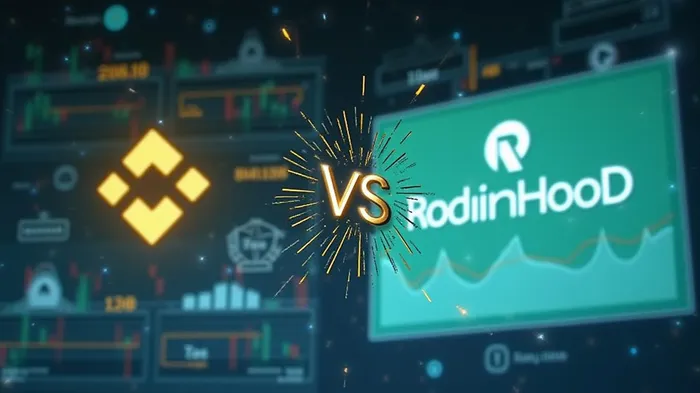Binance,Robinhood:Fees,Features,Security,Support Compared
Binance and Robinhood are two prominent platforms in the crypto industry, each offering unique features and services tailored to different types of traders. Binance, founded in 2017, is a global crypto exchange serving users in over 180 countries, excluding the US. It supports a wide range of crypto assets, including major cryptocurrencies like Bitcoin and Ethereum, and offers advanced trading tools, low fees, and the ability to earn passive income through staking and other programs. Binance also provides automated trading spots and access to the Web3 ecosystem, making it suitable for experienced traders.
On the other hand, Robinhood, established in 2013, is primarily a US-centric investment platform with a growing user base in the UK and EU. It offers commission-free trading and is more beginner-friendly than Binance. While it supports fewer cryptocurrencies, it is a good option for investors who want to trade crypto alongside other traditional financial instruments such as stocks, ETFs, and options. Robinhood's minimalist interface makes it easy for new investors to buy and sell cryptocurrencies with fewer complex trading options.
In terms of fees, Binance has a 0.100% trading fee for both maker and taker fees, which can be reduced by holding Binance’s native token, BNB, or having a high 30-day trading volume. Robinhood, however, offers a zero commission fee structure on crypto trades, although it earns revenue through a spread markup. This means that the buy price is slightly higher and the sell price is slightly lower than the market rate, often ranging between 0.5% and 1.5%.
Both platforms prioritize security, implementing robust measures to ensure the safety of users’ funds and data. Binance uses a Secure Asset Fund for Users (SAFU), withdrawal whitelisting, and cold storage to protect against security breaches. Robinhood, on the other hand, employs two-factor authentication (2FA), biometric login, and Bcrypt encryption to safeguard user accounts and sensitive data.
Customer support is another area where the two platforms differ. Binance offers 24/7 live chat support and a dedicated support portal for submitting and tracking support tickets. However, some users have reported slow response times and language barriers. Robinhood's customer support has received mixed reviews, with many users highlighting unprofessional interactions and difficulties with account access issues.
In conclusion, the choice between Binance and Robinhood depends on the trader's goals and experience level. Binance is ideal for users who want access to a wide variety of cryptocurrencies, low trading fees, and advanced trading features. Robinhood, on the other hand, is designed with simplicity and ease of use in mind, making it suitable for beginners or casual investors who want to trade a few major cryptocurrencies without dealing with complex interfaces. 
Quickly understand the history and background of various well-known coins
Latest Articles
Stay ahead of the market.
Get curated U.S. market news, insights and key dates delivered to your inbox.



Comments
No comments yet